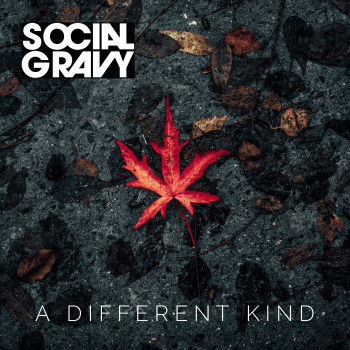Interviewing SJS - A Sequence Of Mistakes
- George
- Aug 30, 2024
- 4 min read
SJS is a band that spans the UK and Australia. This global group of creatives is united by musical intention. The group has given us three brilliant projects displaying their open-minded, genre-bending sensibilities that grow from their confident prog-rock roots. I sat down to talk to Stawman, the band's frontman, about their latest release, A Sequence Of Mistakes. I was particularly interested in Tear Gas, an enigmatic single from A Sequence Of Mistakes.
Sponsored

Stawman has spent time living in England and Australia. I wanted to know how that cultural mix affected his music.
I must admit, I think of my music as being thoroughly English, having grown up there. Aristotle said “Give me a child until he is 7 and I will show you the man”. From folk music to Mike Oldfield, from Genesis to Peter Gabriel’s solo career, that was the air I was breathing growing up and I think there’s no escaping the gravitational pull of those years. I’d like to tell you that there has been an Australian influence but I’m not really sure what that is except a kind of strange permission to allow more sunshine to come through in the music from time to time!
Tell me about your hometown and how it influenced you musically.

We moved around the North and South of England but settled in Yorkshire when I was 11 through 18. I lived in a small town called Malton, half way between York and Scarborough. The biggest influence of that place was discovering that a Folk Night was held on the 3rd Thursday of every month in the upstairs rooms of one of the pubs. That was eye-opening, I couldn’t believe the amount of talent that was showing, all about acoustic instruments and the human voices. It left a lasting impression. The folk thing doesn’t shine through very much in ‘Tear Gas’ so much, but its fully on display in two other tracks on the album, ‘Drift to Shore’ and ‘Big Black & White’.
Did the project come together as one concept or was it an ebb and flow of separate creative ideas?
When we got to the end of the last album, I gathered up various songs that hadn’t found a home yet and realised that some of them hung together around certain themes, especially if I wrote a couple more songs to go with them. So ‘A Sequence of Mistakes’ is a sequence of songs that have a narrative thread - a relationship goes badly wrong and a woman does what she needs to do to transform and take her life into a new phase - but it's not critical to how people engage with the album, just as we don’t always need to know what an artist was thinking to appreciate a painting. Other people will focus more on the music and how the different soundscapes of the album create their own kind of movie. And, of course, because things have changed since the ‘album days’ of earlier years, many people listen through and find the particular songs that speak to them and they just carry those forward. What’s been amazing is to see how different folk are choosing different songs, it’s like each song has its own fan club!
With Kirsty Forster and Richard Naisbett joining the team for the first time on this project, did anything change about the creative process to fit the song to their talents? Or did their skills change the sonic narrative of the track?
Probably a bit of both. Tear Gas was already written when I first got in touch with Richard and I soon realised he’d be way better for the piano part than anything I could ever do. Not only was that a no-brainer but he took me completely from left field with the extraordinary solo he turned in for the outro. The call-and-response vocal section was already written too, but I didn’t have a strong candidate to carry the female part.

Then I got to wondering if Kirsty, who Richard works with in England, would be up for giving it a go. She totally nailed it! That 3rd verse, just before the call-and-response section, was planned for both of our voices, but when she sent me her takes I basically deleted all of my parts except for a couple of harmonies in the background and gave it over to her. She owns it. In terms of your question about sonic narrative, Richard clearly has some Jazz chops up his sleeve going in to that outro solo and that really extends the sonic reach of SJS. But it really doesn’t turn it into a Jazz track any more than you would say Mick Garson’s piano turned Bowie’s Aladdin Sane has that effect. I think it’s more that the piano introduces a quality of ‘unhinged’, which sits very nicely after the more melodic stuff that has gone before.
What do you want the impact of this project to be?
Impact? Interesting question.I don’t know that there is an impact that is hoped for during the recording beyond being personally happy with the result and happy with the album as a whole. Now that it’s released, I love it when people from places all over the world that I’ve never met let me know they’ve enjoyed the album or a particular track.
What non musical experiences throughout your life unexpectedly affect your music?
Well, look at the album title, ‘A Sequence of Mistakes’! It’s ‘the stuff of life’, the twists and turns, the unexpected, that feeds the music. Some things in life are hard to put into words but music provides another way of expressing it. The enormity in the mundane. The awe in life’s vastness. What it is to be alive.
Check out A Sequence Of Mistakes below, thanks to Stawman for sitting down with me!







Comments